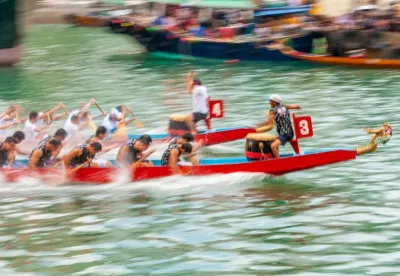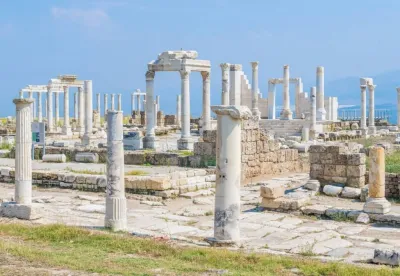There have been surprising changes in tourism statistics in the southern province of Antalya with the start of the 2011 tourism season. While the number of German tourists is on the decline, Russian tourist numbers skyrocketed during the first three months of 2011. A similar swing has also occurred among Israeli and Iranian visitors
The changing face of tourism in Antalya has surprised many in the southern province so far in 2011, as visits from Germans and Israelis have dropped sharply while business from Russians and Iranians has significantly increased.
The decline of the country's economy is the biggest reason behind the decrease of German tourists, İrfan Ali Ören, a tourism investor, recently told the Hürriyet Daily News & Economic Review. “People feel the need to reorganize their social needs in the midst of such tight economic conditions. Their need for a holiday abroad may not be the top priority.”
Germans used to be Antalya’s biggest customers, but the numbers coming from the country decreased 7.31 percent in 2011. Some 321,189 German tourists visited the Mediterranean province in the first quarter of 2010, but only 297,701 came in the first quarter of this year, according to the Antalya Provincial Directorate of Tourism.
Russian tourists, on the other hand, have surprised tourism authorities this year as visits from the large market rose 176.32 percent over the last year; while 23,177 Russians visited the region in the first quarter of 2010, 64,043 came between January and March of 2011. The numbers could increase furthermore as Turkey and Russia are set to formally abolish visa requirements in April.
Ece Aysun Avcı, operations manager of Sun Travel Agency in Cyprus, said that the saturation in the German market was also a legitimate cause for the decrease in numbers to the area.
“At the same time, increased competition in tourism around the Mediterranean basin gives a wider range of options to holidaymakers, who might choose not to come to Turkey,” she said.
The tourism sector has also experienced a similar surprise in the changing numbers of incoming Israeli and Iranian tourists. While some 23,133 Israeli tourists visited Antalya in the first quarter of 2010, the numbers fell to 4,194 in 2011, an 81.87 percent decrease.
Sector representatives cited worsening political ties between the two countries as the main reason tourism from the eastern Mediterranean country has suffered. A stunning rise in the number of Iranian tourists, however, has compensated the loss of Israeli tourist numbers; while 20,617 came in the first quarter of 2010, 43,430 visited in the first three months of 2011, representing a 110.65 percent increase.
With full occupancy even during winter months, hoteliers in the southern province are extremely pleased with the arrival of Iranian tourists. “Iranian tourists discovered Turkey in the last few years and have successfully taken the place of European tourists, especially during the winter,” Celal Ure, head of Baran Parvaz Tours & Travel Agency, which has offices in Istanbul and Tehran, told the Daily News.
Ure said Iranian tourists chose Turkey because of the cultural similarities between the countries, proximity, hospitality, reasonable prices and the country’s natural beauty. Iranian tour operators are also taking Turkey and Turkish tourism as a model, Ure said, adding that a new understanding of holidays had been growing in the Islamic republic in recent years.
Tourism representatives said Iranian tourists preferred to participate in daily tours, travel around the country and shop for carpets, jewelry and apparel, instead of staying in their hotels.
An estimated 25,000 Iranian tourists visited Antalya’s Deepo Shopping Center during this year’s Nevruz festival, a ceremony that marks the transition to spring throughout the Middle East, as well as the beginning of the Persian new year.
By Betül Çal








